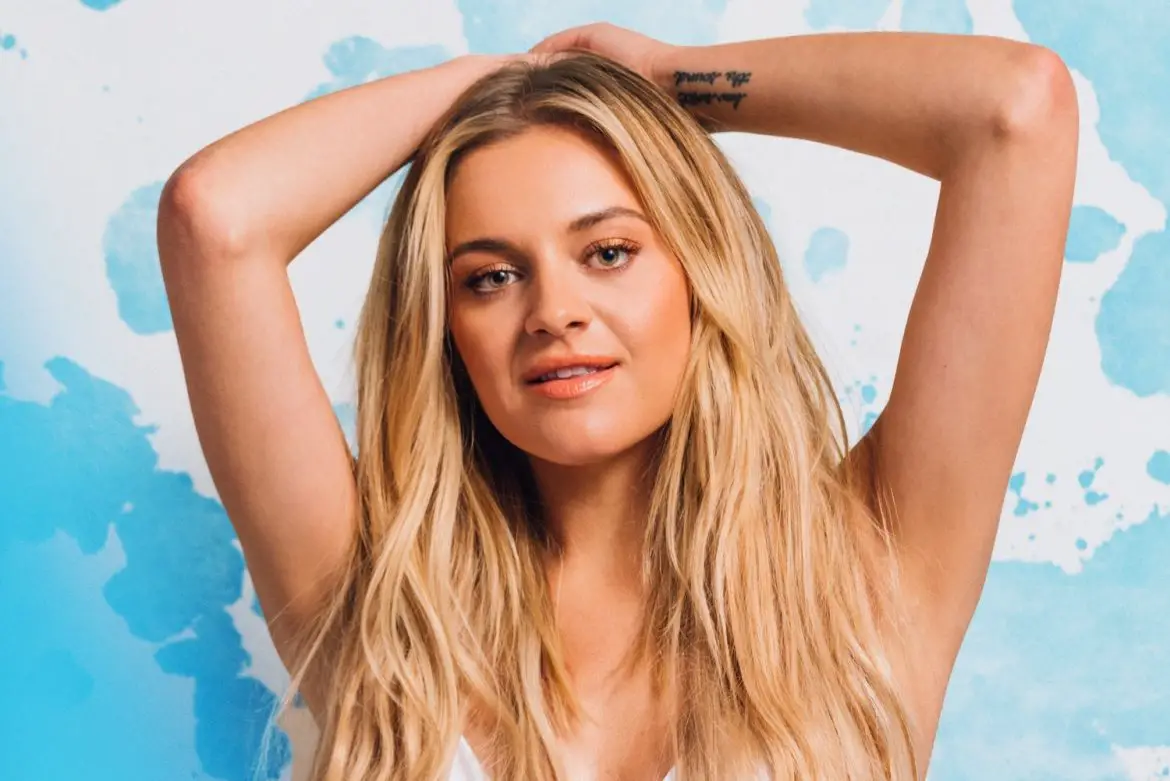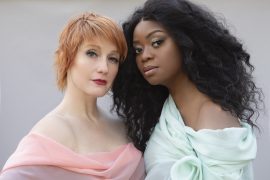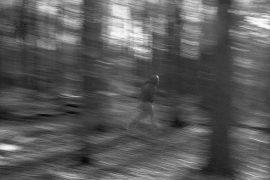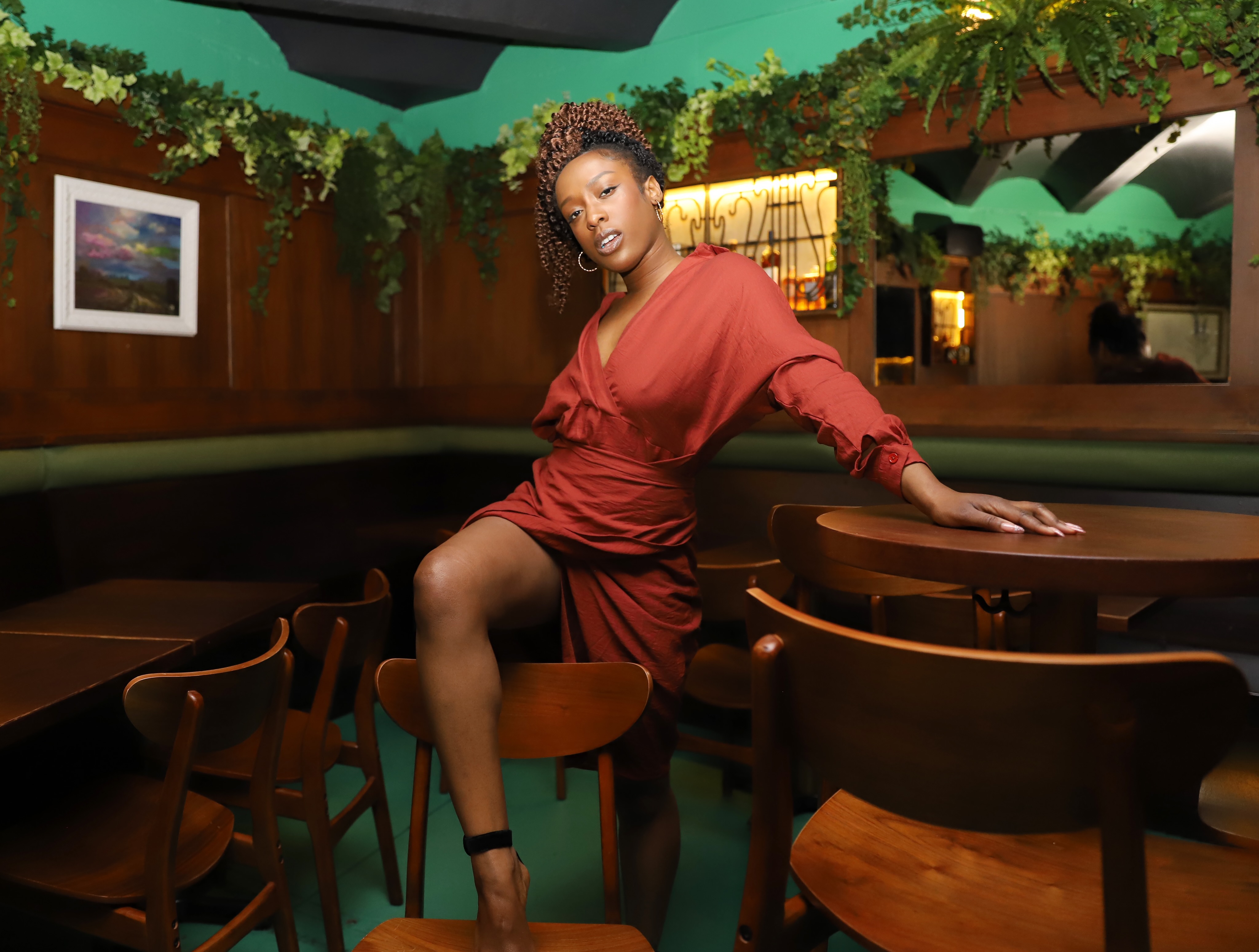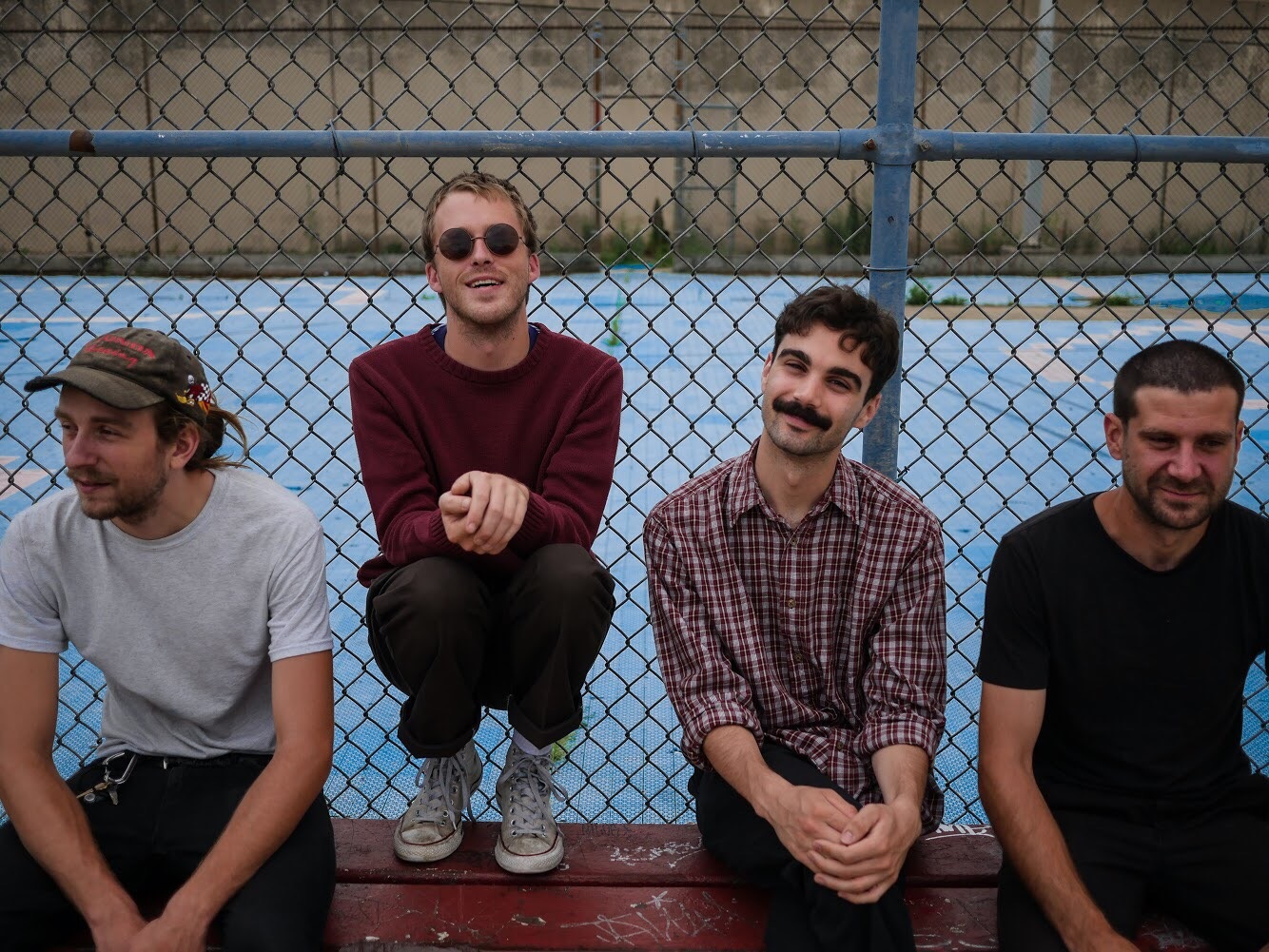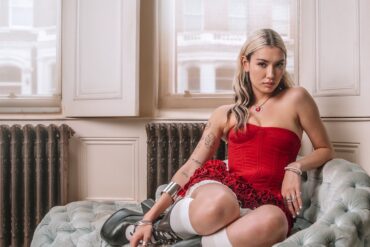Country superstar Kelsea Ballerini talks to Atwood Magazine about her new album ‘SUBJECT TO CHANGE,’ being a chronic people pleaser, and how writing poetry made her a better songwriter.
Stream: “WHAT I HAVE” – Kelsea Ballerini
I’m like an open heart all the time, which means that we just get hurt more often, but it also means that we feel our feelings, which is good!
I meet country superstar Kelsea Ballerini on late a summer afternoon; her in Nashville and me outside Oxford in England. Ballerini is fresh faced, incredibly warm and friendly, and full of contradictions that she doesn’t try to hide. At one point during our interview, she forgets a question I asked and then when she asks me to repeat it, I also forget what I’ve just asked. A collective “brain fart” (Ballerini’s words, not mine).

Ballerini and I are here to talk about her new album, SUBJECT TO CHANGE (September 26, 2022 via Black River Entertainment). It is Ballerini’s fifth studio album, and produced by Julian Bunetta and Shane McAnally. It’s an eclectic soundscape of a record, pulling from ‘90s and early 2000s country and pop music. There’s “I Can’t Help Myself,” which could easily be compared to Shania Twain’s “Man, I Feel Like A Woman,” and “If You Go Down (I’m Going Down Too),” which is reminiscent of The Chicks’ “Goodbye Earl.” There’s even a little Taylor Swift’s “Fearless” within “The Little Things.”
Save your money on the roses, baby
Just leave a daisy on the dashboard
Just pick me up in your old Bronco, baby
Don’t gotta ride in on a white horse
When you’re younger they say it’s a kiss in the rain
Throwing rocks at a window
But it’s when we’re in a crowded room, put your hand on my back
And waiting on me in the morning with my coffee black
Back to the basics ’cause they’re bigger than they seem, yeah
Give me that typical, simple love, it’s the little things
– “The Little Things,” Kelsea Ballerini

Ballerini says all of this was very deliberate when it came to the recording the album. When the pandemic hit, like a lot of us, she surrounded herself with the familiar and well-worn, and for Ballerini that included the country music she grew up with.
“I think everyone reacted differently in the last couple of years to what’s gone down and I feel like for me, I found a lot of comfort in nostalgia. I started listening to the music that I grew up on which was the ‘90s, and so naturally that’s what heavily influenced the writing process of this record, and sonically, I was just like this is what has been consuming my brain.”
Both in our oversized “cozies” as she calls them, and both in our separate time zones, Kelsea Ballerini and I sat down to talk about SUBJECT TO CHANGE.
I’m still getting my footing on what I really want to stand for, but I think the way that you do that, especially as a chronic people pleaser, is you just kind of word vomit all the things that you’ve experienced in your life, and you find the things that you’re really passionate about standing up for, and then you just do your best to show up for those things.
— —
:: stream/purchase SUBJECT TO CHANGE here ::
Stream: ‘SUBJECT TO CHANGE’ – Kelsea Ballerini

A CONVERSATION WITH KELSEA BALLERINI

Atwood Magazine: Are you looking forward to release day?
Kelsea Ballerini: I am. I feel like it’s so interesting because its mine and very few peoples for like a year, and then all of a sudden, I just hand the baton off and it’s not mine anymore more now and it’s just a crazy feeling.
People will go and make their own stories and make it about their own lives. For me, I feel like it’s a mixture of your last two albums you released in 2020. You said you were predominantly listening to ‘90s music during the pandemic. Was it a more organic decision rather than ‘I want to make a 90s like sounding country pop record’?
Ballerini: Definitely. When it was time to collect the demos and figure out the through-line and all of that, it was very obvious that that was the direction the record was going in so then we just pushed it even further.
I can hear a bit of Shania Twain, a bit of The Chicks, and a little bit of Taylor Swift’s Fearless in one of the songs.
Ballerini: That’s cool. I was influenced by obviously ‘90s country, but I was also really influenced by like Sixpence None the Richer and The Corrs and Sheryl Crow, like kind of across the board, like everything ‘90s and early 2000s.
When did you start writing and how long did the writing take before going into record?
Ballerini: The first song that I wrote for this record was “Marilyn.” I wrote that in April of 2020, and then the last song I wrote for the record was “If You Go Down (I’m Going Down Too)” and that was in April of 2022. It really was a two-year span, and I like that about my records. One thing I’m really proud of when I listen back to my records, which I do sometimes, is I do feel like they bookmark and highlight those two years of my 20’s, and I feel like this record honestly narrates the feelings and introspection and everything and the juxtaposition that I’ve had the last two years.
You published a book of poetry not too long ago, Feel Your Way Through. I know you said that the poems weren’t just something you could turn into songs and put to the music and put on an album, and I’m wondering how much the poetry informed this record because there's a lot of really very honest songs on Subject to Change. Like on “Doin’ My Best,” you talk about pretty much everything from therapy and marriage counseling to working with someone and that relationship not continuing with amongst other topics. Did the poetry open something in you, or do you keep those two things very separate from each other?
I have moments of clarity.
Some occasional confidence.
But they’re hundred proof, neat
And I have a low tolerance.
So now I settle into the chaos.
See beauty when the castle inevitably crumbles.
Feel comfort in not knowing.
Find joy in being jumbled.
– “jumbled” from Feel Your Way Through
Ballerini: I think writing the book of poetry just sharpened me as a writer overall but I will say I was listening to just the board tapes because we cut this whole record with a live band which is my first time doing that, and I was listening to the board tapes for the first 10 songs and we had like two more weeks and then we were to go back in and finish the record and it was, you know, I was listening back to like “Muscle Memory” which is one of my favourite songs on the record and “You’re Drunk, Go Home” and stuff like that, and I love the energy and I knew that they would translate well live and that kind of stuff, but I was like I’m playing a character in these songs and I’m doing myself a disservice if I don’t have one song on this record to anchor it in the personal growth that I’ve experienced through writing the book and then just growing up the last couple of years.
I was on vacation when I had this realisation and I called my really good friend Alysa (Vanderheym) and she had written a lot of the songs on the record with her and I was like ‘Hey, do you have any tracks just hanging around that you could send me. I need to write something’ and so she sent me the track for “Doin My Best” and it was just like a stream of consciousness where I was like, I want this to feel uncomfortably honest because that’s what the book was and I feel like I unlocked a part of myself in writing it and opening that up and I wanted to keep walking through that door, so I would say “Marilyn” and even bits of “Subject to Change” in general are in that vein too.
I’m doin’ my best, I’m letting the rest roll off my shoulders, baby
Don’t always get it right, hey, and that’s alright
That’s what I’m learning lately
I keep growin’ up, I keep rollin’ up my sleeves
And I think that showin’ up is good enough for me

The first track gives the listener a pretty good idea about where they're going to go on the album. I think the title is brilliant because we are all subject change. We don't stay the same even though I think a lot of listeners want artists to remain the same and never grow up.
Ballerini: Oh my gosh that’s so true.
I keep joking that this is my first grown up album. I also love that that fits under the theme of Subject to Change because I’ve always been really careful and thoughtful about – like, I still want to be the girl that sings “Dibs,” which I wrote when I was 19, but I also want to honor that I’m 28 now and I’m in a different season of life. I wanted to do that honestly but also be respectful to people that have been with me from the beginning, so I think I maybe was harder on myself on my last couple of records and keeping myself in this probably self-inflicted box a little bit more and this record I didn’t care. This record I was like I’m just going to talk like I talk and I’m going to say things that are a little more grown up and lose the filter, lower it a little bit more. I think that is part of growing up, I think that’s part of changing and evolving.
I’m subject to going from zero to feeling obsessed
To happy and laughing, then being upset
But if one thing’s the same
It’s that I’m subject to change
You’ve never shied away from talking about your sexuality or a woman’s sexuality in your music, which I think is really cool because I feel like a lot of country artists won’t go there. Where does that come from or is just from a place of wanting to be honest?
Ballerini: I just try to be open about everything, whether it’s that or whether it’s like therapy or mental health in general. I’m very open about the deficit of women in country music and in the book, I talked about eating disorders and body dysmorphia, and then gun violence. I mean I just kind of went everywhere. I’m still getting my footing on what I really want to stand for but I think the way that you do that, especially as a chronic people pleaser, is you just kind of word vomit all the things that you’ve experienced in your life and you find the things that you’re really passionate about standing up for and then you just do your best to show up for those things. I think I’m kind of still on that journey figuring that out.
I still want to be the girl that sings “Dibs,” which I wrote when I was 19, but I also want to honor that I’m 28 now and I’m in a different season of life.
In that same song you mention about picking your battles particularly on Twitter. Do you find social media is kind of helpful with deciding what you want to stand up for or not?
Ballerini: I think social media is wonderful and it’s so awful at the same time. It’s such a necessary evil and it’s a way that I can connect with people and in a really authentic way but it also allows for people have a forum to be pretty awful and they are if they want to be. For me, I’m super sensitive and I don’t want to change that about myself. I don’t want to callous myself because that would make me bad songwriter so I’ve learned boundaries with social media. I no longer have Twitter. I will never have Twitter again. I haven’t had it for a year and a half.
With Instagram and TikTok, I have found they have really amazing filters that you can put on so if you have trigger words you can put it into the app and you won’t even see the comments or the DMs or whatever that have certain words in them. I’ve discovered ways to kind of have a healthier balance with that kind of stuff and protect myself more so I can show up as myself honestly and sometimes that’s messy and sometimes that’s not perfectly said or put together, but I’ve learnt kind of ways that I can protect that a little bit more.
I’m just now kind of learning about myself and that my voice is, it’s bigger than just singing, and [I’m] learning how to step into that more.
You said you tracked the album live. How many sessions did you do it all in?
Ballerini: We did a week for the first 10 songs and then three days for the last five but it was triple sessions a day so it was 9 until 6. We had the same musicians the whole time, so we just were able to really create this camaraderie and this this sound. Like I said, I’ve tracked live musicians before but it’s normally like an overdub, it’s never been everyone in the room together with the synergy there. It was really magical to watch. I think it really added like a warmth to the whole record just the sound of people playing live instruments together. You can hear it, I mean it’s just warmer.

I’m just now kind of learning about myself and that my voice is bigger than just singing – and [I’m] learning how to step into that more.
Did you work with the same people you worked with in the past, or did you bring in new people?
Ballerini: The producers Shane McNally and Julian Bunetta and I never worked with in a production sense, and they did the whole record, which is also different from Kelsea because that was much more like a patchwork of a record. Every song had a different production team and song writing team. This record overall, the song writing collaborators I worked with is a much smaller pool and then and then Julian and Shane produced the whole thing, so it felt more streamlined. I think because I write everything it has my fingerprint through as the through-line, but I was in an exploratory phase musically and I wanted to try everything. I wanted to write in LA, I wanted to write with artists that I wanted to, and it was the first time I felt confident enough to do that and I’m glad I did it but then I wanted to switch it up again this time.
Did anything change going in? Did you have a specific idea for how a song would sound, and then it changed when you got in the studio?
Ballerini: Yeah “Love is a Cowboy” is the one that had the biggest metamorphosis. The demo is like very up-tempo, very pop, a different structure. Honestly, I sat down with Julian and Shane, and I was like, ‘I love these lyrics so much and I think that we need to rework it to where it’s all about the lyric’, and so it’s actually now one of the barer tracks on the record but that one had the biggest shift. Then we re-cut the ending track “What I Have” and lost the magic, so that version ended up just going, so we have the original demo on the record from the day that we wrote it. It’s a one take vocal, one take guitar, one take harmony so that one is also its own little moment too.
Makes your heart feel like wild horses in your chest
Trying to catch, it’s like tryna tame a wild, wild west
And when I’m with him, it’s like ropin’ the wind
Love is a cowboy
I love “Love Is A Cowboy.” It’s what got me hooked on the album, so it’s crazy to hear how much it changed.
Ballerini: Is it?!
The soundscape is so vast and makes me think of possibility and endless skylines. It’s kind of happy and free, but it's also got that melancholy to it and that longing, which is just perfect.
Ballerini: It’s like the metaphor. It can mean whatever you want it to mean and that’s my favorite thing as a songwriter to find those songs. If you are going through a breakup, that songs about a breakup, if you’re madly in love, that song is about being madly in love you know? It’s one of those rare hooks that we found that just kind of covers the ground of a relationship. The original demo I’ll put it out at some point but yeah, it’s very different
Kelly Clarkson and Carly Pearce feature on the song “You’re Drunk, Go Home.” I interviewed Carly last year and she talked about how supportive you were when she released 29. Did Kelly and Carly come to the studio to record their vocals?
Ballerini: I asked Kelly to be a part of it in the morning and she did her vocals that night which just says so much about her and that is why she’s a superstar – so I was not able to get my booty to LA in time, but Carly and I did vocals together. Carly and I go way back and she’s actually coming over here for lunch after this which is ironic and funny but she’s like my real-life friend. We’ve always wanted to do something together and this just felt right. She’s so sassy and the song to me is such a like sass-bomb and I was like, “she’s perfect, this is perfect.”
I bet you still live with your mama
Down in her basement, tryin’ to be Nirvana
Playing with your guitar all afternoon
You got the kinda face where it mighta been a maybe
But you got a lot to learn ‘bout flirtin’ with a lady
I’m down to talk dirty, but you started talking dirty too soon
You’re drunk, go home
Did you have them in mind when you wrote the song?
Ballerini: I knew that I wasn’t going to do a collaboration on this record just because my last moments of success have been with someone else, which I’ve been really blessed by, but I was like ‘I just need to stand on my own two feet for a second’ and then we wrote “You’re Drunk, Go Home” and I just envisioned three women singing it. I was like ‘Okay, what makes this interesting? Who fits the narrative of the song? Who has a lot of wit and who has a lot of sass that I know that I’m friends with?’ because I refuse to do a duet with someone I’m not friends with, and yeah, it was like Carly and Kelly. I just picture the three of us around one microphone and having the undertones of shit talking the whole time.
The lyrics of “Doin My Best” mention a bad experience of collaborating: “I was friends with a pop star, I put ‘em on track 4, but wish I could take back, I woulda never asked, if I knew we wouldn’t talk anymore.”
Ballerini: Every collaboration is super different, and I’ve been lucky enough to have a bunch of different kinds of collaboration, some in country, some in pop. I think “Doin My Best,” the overall theme of it is taking ownership for moments that didn’t go how you thought they would or messy moments or embarrassing moments or cringey moments, and that is just one of the vignettes in that song. I just acknowledge that maybe like mixing friendship and work doesn’t work out like you want it to and that was just like one of the stories I wanted to tell.
I agree it is sad when you think you’ve made friends with someone you work with and then it turns out that it was just like a work thing for them and then if you’re sensitive, like I can be, you end up getting hurt.
Ballerini: Same girl. I’m like an open heart all the time, which means that we just get hurt more often, but it also means that we feel our feelings, which is good!
Is it nice being back performing? How is it compared to pre-COVID?
Ballerini: The last headlining tour that I did was spring of 2019 and then we had a whole headline run plotted for followed 2020 and then obviously went away, and so the first time I got back on the road and was opening for the Jonas Brothers. The shows I’ve done recently have been headline shows and it just feels like there’s a different energy. I don’t know if it’s me because I’m bringing it because I’ve missed it so much, or if the people who are coming to shows haven’t seen many shows, so there’s more excitement, or if we’ve missed human connection the last few years. It’s like this magnet to each other; I’m not sure what it is, but it’s felt really magical.

I got the impression that when your album Kelsea came out, and this was the same with a lot of other artists I interviewed about albums that were released in 2020, that this was going to be the album and this was going to be one you were going to get behind and be the one to push, push, push and then it just didn't happen. Then you released Ballerini, which was a reimagining of Kelsea. I’m not going to say the acoustic version because it isn't. I wondered how did you deal with the obvious disappointment you had when you couldn’t be out touring, and the album didn't grow its legs and go off into the world in the way that it was meant to?
Ballerini: It was that, but it was also you know mourning, not mourning, but grieving the plans that I had around it because I don’t make a record to just put it out into the world and then just go ‘Hope people like it’ and turn around. I make a record to sing it with people you know, and to have that moment with people and I just had to grieve the loss of that you. I had planned a lot around it, and it went away but wait what was the question? I just completely had a brain fart. [laughs]
Yes good point, what was the question?! How did you deal with the disappointment?
Ballerini: I think honestly, hindsight is 20/20 because in the moment I was like ‘My career’s over, like bleurgh!’ and I was also, I was grieving with the world as well, so it was just dark. I mean it was really dark, my spirit was very very heavy for me, for the world, for everything and I think now, when I look back at it, it was such a good ego check. It was such a good ego check because at the end of the day, you know, the people that needed to hear the record heard the record and although I didn’t get to share it with them in person, music finds people that it needs to find.
Now that the world’s kind of opened back up and I’m playing these shows I’m seeing people sing songs that were on Kelsea and it found them and that’s the whole point. I cared so much about the press around the album, I cared so much about the tour or how we were going to launch it and it did it look big enough and did it look sparkly enough and all this stuff, and at the end of the day, it all went away, and the music still found the people it needed a find. Moving forward it’s like finding a balance of those two things. It was a good ego check for me.

I spoke to other artists during lockdown, and they all said, besides the obvious financial implication of it, especially for independent artists, which was huge and for very new artists getting a foothold in the industry, they began to completely re-evaluate their relationship to music and touring and performing and what was important to them. Did you do the same?
Ballerini: I think everyone reacted differently, but I think I think you’re right, it was like mainly one of two things, people just pivoting and figuring out how to make it work or people going ‘Well, I need to re-evaluate a lot of things, give me a second’ and both are correct.
Did writing your poetry become your pivot in the whole internal conversation artists were having with themselves?
Ballerini: That was my pivot honestly. I didn’t even really at first know that I was writing a book and I certainly didn’t know that I was writing a book that I was going to put out and share with people but it just got to a point where I was writing the earlier pieces and I was sending them to my best friends, and they were just like ‘This is like this is the most proud of you I have been so you should maybe share this part of you because this is you.’ With music you can kind of make things sounds nice and you can round the edges and you can make it feel happy even if like you really dig into lyrics and you’re like ‘Oh wait, that sounds like a happy song, it’s actually not.’ You know, “club” is not a happy song but it’s a bop. With the poetry, it’s there, its face value, like the stories are exactly what they are. I didn’t round the edges this time.
What's your favorite song from the new album?
Ballerini: Such a hard question. It depends, my baby of the record is “Marilyn” just because I wrote it by myself, and I just am proud of. I think my favourite song that that I’m most excited to perform live would be “I Guess They Call It Fallin.’” I think the song that I’m most excited to hopefully have as a single would be “Muscle Memory”, and then I think the song that like lyrically I may be most proud of is “Universe.”
I always do one song by myself on every album and it’s something that I’ve done from the beginning, just to hold myself accountable because it’s so easy to always depend on collaborators that are incredibly talented to help put the pieces together, and I obviously wrote 14 songs with collaborators, but I always like having one where I just trust myself.
Was it worth it to seem so perfect?
Blonde and curves didn’t keep you from your skeletons
Was it lonely, show pony?
Did you miss Norma Jeane?
The woman underneath
Or did you always wanna be Marilyn?
— —
:: stream/purchase SUBJECT TO CHANGE here ::
Stream: ‘SUBJECT TO CHANGE’ – Kelsea Ballerini
— — — —

Connect to Kelsea Ballerini on
Facebook, Twitter, Instagram
Discover new music on Atwood Magazine
? © Patrick Tracy
:: Stream Kelsea Ballerini ::

